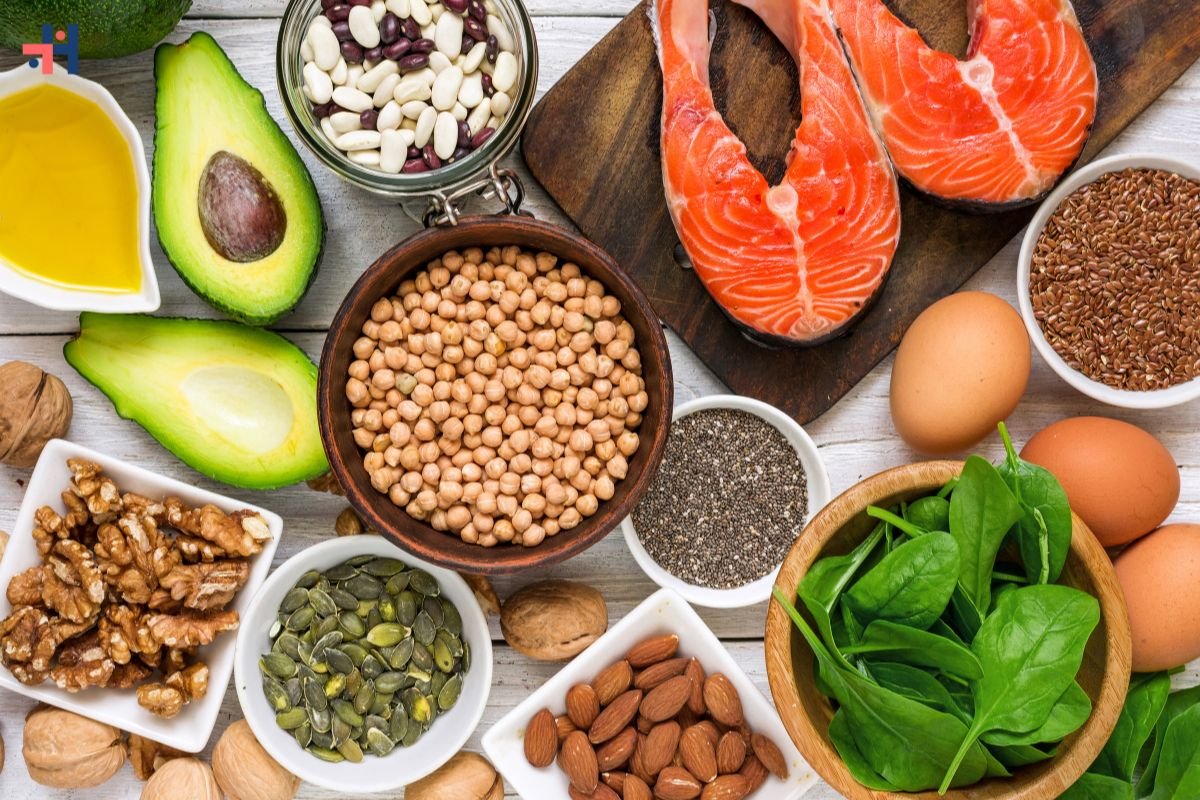The Mediterranean diet for beginners has gained widespread recognition for its numerous health benefits and delicious culinary options. Renowned for its emphasis on fresh, whole foods and its potential to reduce the risk of chronic diseases, this eating pattern has captured the attention of health-conscious individuals worldwide. In this comprehensive guide, we will explore the key principles of the Mediterranean diet for Beginners, and its health benefits, and provide practical tips for beginners looking to adopt this wholesome and flavorful way of eating.
Understanding the Mediterranean Diet for Beginners
Originating from the traditional dietary patterns of countries bordering the Mediterranean Sea, such as Greece, Italy, Spain, and southern France, the Mediterranean diet is characterized by an abundance of fruits, vegetables, whole grains, legumes, nuts, seeds, and olive oil. Fish and seafood are consumed regularly, while poultry, eggs, cheese, and yogurt are enjoyed in moderation. Red meat and sweets are limited, making occasional appearances rather than staples of the diet.
Health Benefits of the Mediterranean Diet for Beginners
Numerous studies have highlighted the health benefits associated with the Mediterranean diet. Research suggests that adhering to this eating pattern may reduce the risk of heart disease, stroke, type 2 diabetes, and certain types of cancer. The emphasis on nutrient-rich foods such as fruits, vegetables, and olive oil provides essential vitamins, minerals, and antioxidants that support overall health and well-being. Additionally, the Mediterranean diet has been linked to improved cognitive function, better weight management, and longevity.
Key Components of the Mediterranean Diet for Beginners

- Abundance of Plant Foods: The Mediterranean diet is primarily plant-based, with fruits, vegetables, whole grains, legumes, nuts, and seeds forming the foundation of meals. These foods are rich in fiber, vitamins, minerals, and phytonutrients that promote health and vitality.
- Healthy Fats: Olive oil is a staple of the Mediterranean diet and serves as the primary source of fat. Rich in monounsaturated fats and antioxidants, olive oil offers numerous health benefits, including reducing inflammation and protecting against heart disease. Other sources of healthy fats in the Mediterranean diet include nuts, seeds, and fatty fish like salmon and sardines.
- Moderate Consumption of Dairy and Poultry: Dairy products such as cheese and yogurt are enjoyed in moderation in the Mediterranean diet, providing calcium, protein, and probiotics. Poultry and eggs are also included but are typically consumed less frequently than fish and seafood.
- Fish and Seafood: Fish and seafood feature prominently in the Mediterranean diet, providing lean protein, omega-3 fatty acids, and essential nutrients. Regular consumption of fish, such as salmon, mackerel, and tuna, is associated with a lower risk of heart disease and improved cardiovascular health.
- Limited Red Meat and Sweets: Red meat and sweets are consumed sparingly in the Mediterranean diet, appearing infrequently and in small portions. Instead, the focus is on nutrient-dense foods that nourish the body and satisfy the palate without excess sugar or saturated fat.
Additional Components of the Mediterranean Diet for Beginners

- Moderate Alcohol Consumption: While not a requirement, moderate consumption of red wine, especially during meals, is a common practice in the Mediterranean region. Red wine contains antioxidants such as resveratrol, which may offer cardiovascular benefits when consumed in moderation.
- Herbs and Spices: Herbs and spices are used liberally in Mediterranean cooking to add flavor and aroma to dishes without relying on excessive salt or fat. Common herbs and spices include basil, oregano, thyme, garlic, and rosemary.
- Social and Cultural Aspects: In addition to its nutritional components, the Mediterranean diet for beginners emphasizes the importance of enjoying meals in the company of others and savoring food as a social and cultural experience. Meals are typically enjoyed leisurely, with family and friends, fostering a sense of community and well-being.
Also Read: A Low Cholesterol Diet: Tips, Recipes, and Benefits
Practical Tips for Getting Started
- Embrace Plant-Based Meals: Make fruits, vegetables, whole grains, and legumes the stars of your meals. Experiment with colorful salads, hearty grain bowls, and vegetable-based soups to incorporate more plant foods into your diet.
- Use Olive Oil Liberally: Swap out butter and margarine for olive oil in cooking and salad dressings. Choose extra virgin olive oil for its rich flavor and higher antioxidant content.
- Include Fish and Seafood Regularly: Aim to eat fish at least twice a week, choosing varieties that are rich in omega-3 fatty acids. Grilled salmon, baked cod, and shrimp stir-fries are delicious and nutritious options.
- Limit Processed Foods: Minimize your intake of processed and packaged foods, which are often high in refined sugars, unhealthy fats, and sodium. Opt for whole, minimally processed foods whenever possible.
- Enjoy Meals Mindfully: Slow down and savor your meals, paying attention to flavors, textures, and sensations. Eating mindfully can help you tune into your body’s hunger and fullness cues, preventing overeating and promoting greater satisfaction.
- Stay Hydrated: Drink plenty of water throughout the day to stay hydrated and support overall health. Limit sugary beverages and opt for water, herbal tea, or infused water with fresh fruits and herbs.
- Be Flexible and Enjoy Variety: The Mediterranean diet is flexible and can be adapted to suit individual preferences and dietary needs. Experiment with different ingredients, flavors, and recipes to keep meals interesting and enjoyable.

Conclusion:
The Mediterranean diet for beginners offers a delicious and nutritious approach to eating that promotes health, longevity, and well-being. By emphasizing whole, plant-based foods, healthy fats, and lean proteins, this dietary pattern provides a roadmap for optimal nutrition and disease prevention. Whether you’re looking to improve your heart health, manage your weight, or simply enjoy flavorful meals, the Mediterranean diet for beginners is a delicious and sustainable way of eating for beginners and seasoned food lovers alike. By incorporating the key components of the Mediterranean diet into your daily meals and lifestyle, you can experience the many benefits of this time-tested and scientifically supported approach to healthy eating.









